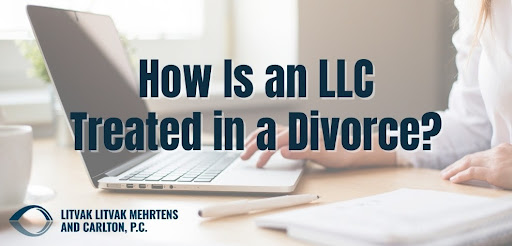The divorce process is complicated and can often put stress on all parties involved. One of the most complicated parts of the entire process is the divorce deposition. What is a divorce deposition? What are the most common questions asked? How should you prepare for a deposition? Knowing what to expect from a deposition will help you prepare and thus, alleviate some of the anxiety surrounding the process.
The Denver divorce attorneys at Litvak Litvak Mehrtens and Carlton, P.C. are here to help you through this stressful process. In this post, we’ll walk you through exactly what to expect during your divorce deposition.
What is a Divorce Deposition?
A deposition occurs during the discovery phase of divorce proceedings. It’s essentially a question and answer session, similar to what you’d see in a testimony. A divorce deposition allows all involved parties to gain and share information pertinent to the case. While depositions are conducted outside of a courtroom, the information may be used at trial and is recorded by a court reporter.
In most cases, the divorce deposition will take place with only a lawyer. First, a lawyer who asks the questions, as well as a lawyer who represents the person being asked the questions.
Most divorce depositions are a search for information.
So, using this step in the process effectively is critical. You’ll want to obtain information that helps your case and improves your chances of a beneficial settlement outcome. Certain questions are common during a deposition, and while it’s important to be prepared to answer them honestly, you’ll also want to answer in a way that puts you in the best light, as well.
How Can I Prepare for a Divorce Deposition?
Speaking to your divorce attorney prior to the deposition is a must. Attorney-client privilege ensures that you can speak candidly about all the facts. Giving your attorney any relevant background information is helpful for the deposition and for direct questioning.
If the proceedings are contentious or the deponents don’t get along, you may want to develop a deposition plan ahead of time. Any safety concerns for your divorce should be addressed with your attorney right away, so as to take proper precautions. You and anyone else involved in your case should tell the truth. If someone is not sure about a question, be honest about that, as well.
Telling the truth is important for the opposing counsel’s cross-examination. If anyone lies during the deposition, since you’re both under oath, you can be held legally responsible.
What Questions are Asked in a Divorce Deposition?
Many people are unsure what questions are asked during a deposition. In general, you can expect to have questions asked about every aspect of your divorce.
If children are involved, it’s possible that you’ll receive questions about the amount of time you’ve spent with your children, as well as the relationship between yourself and your children. This is probably the most challenging area of a divorce deposition-custody and visitation, because of the sensitive nature of the issues involved.
If you’re expecting to pay or receive support, you’ll more than likely receive questions about income, tax returns, etc.
While these questions differ from case to case, our divorce attorneys have detailed the most common subjects in a deposition.
- Finances: Money is a big concern during divorces. Current incomes, potential income sources, and all assets affect settlement negotiations. Having accurate information helps to maintain fairness during the division of marital assets. Issues such as debt between both parties are also discussed.
- Custody and Child Care: If children are involved in a divorce, custody and visitation rights must be established. Questions about where the child will be while one parent is at work or how each parent intends to care for the child may come up. The ultimate goal is settling on what is best for the child, and this may lead to a drastic lifestyle change.
- Recreational or Dangerous Activities: Your personal life is by no means off-limits during a deposition. Questions related to drug and alcohol use are common, so be sure to discuss this with your attorney ahead of time.
- Specific Incidents and Dates: If certain circumstances contributed to or led to the divorce, they will likely be brought up. Also, any incidents that hold relevance to contested issues are important to note. These details can help a judge make their decision.
- Health: Your health or your spouse’s health will raise questions if there are any conditions that can influence judgements or abilities to care for children. You may also be asked about your insurance, as well as who the beneficiary is for your policy.
Depositions are stressful and can bring out intense emotions. In order to ease your anxiety, prepare for your deposition in advance with your divorce attorney.
How Can I Protect Myself During a Deposition?
Divorce depositions are case-specific. So, the best way to prepare for your divorce deposition is to be as familiar as possible with the issues in your case. You’ll want to work closely with your attorney, discussing the strengths and weaknesses of your case and follow any advice they give you.
These are a few recommendations we have to best protect yourself.
- Be truthful. Honesty is the best policy during a divorce deposition. We recommend that you listen to the entire question, take your time, and do not be afraid to say that you do not know an answer. If you perjure yourself, or lie, there is a chance you will face criminal charges.
- Consult with an attorney. Spend time with your divorce attorney and ask what to expect. Your attorney-client privilege is paramount, so do not be afraid to ask questions.
- Prepare for the environment. Try to stay calm. Depositions are often stressful, and people can feel very anxious during them. Adjust your mindset and remember that you and your attorney will learn just as much from your opponents as they will from you.
Contact Divorce Attorneys Litvak Litvak Mehrtens and Carlton, P.C.
If you’re going through a divorce and you have concerns about your deposition, contact Litvak Litvak Mehrtens and Carlton today. We will answer your questions and guide you through your divorce deposition. Call our experienced Denver attorneys at 303-951-4506 to schedule your consultation.






